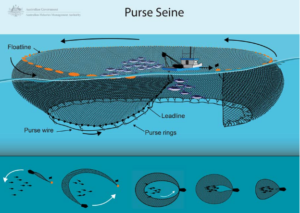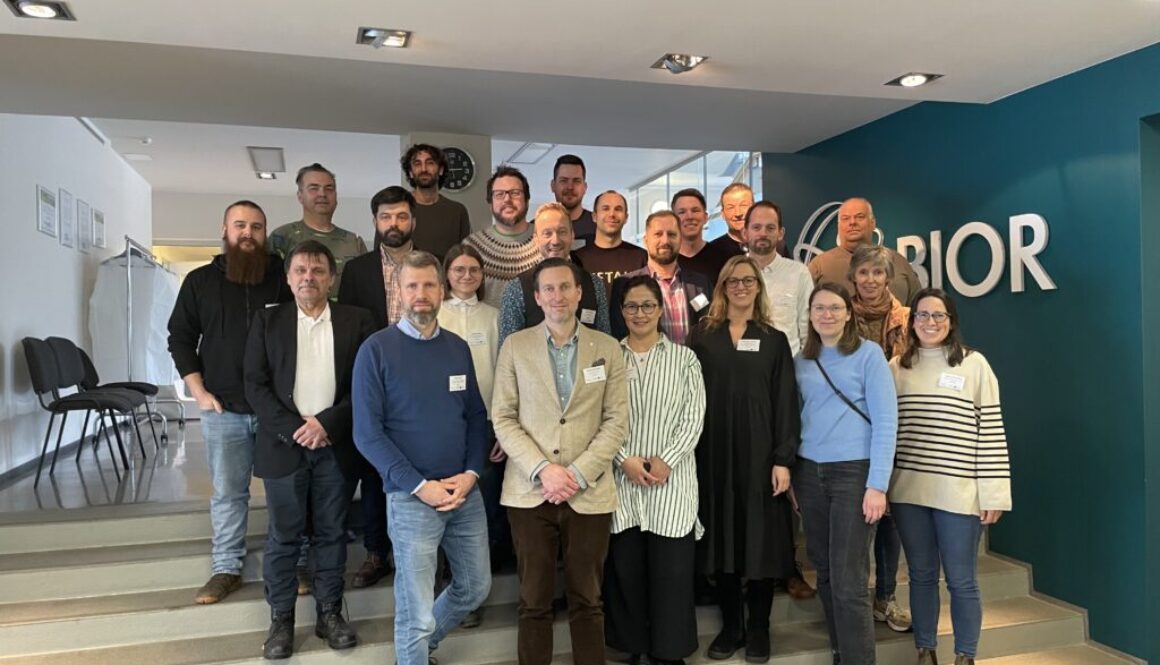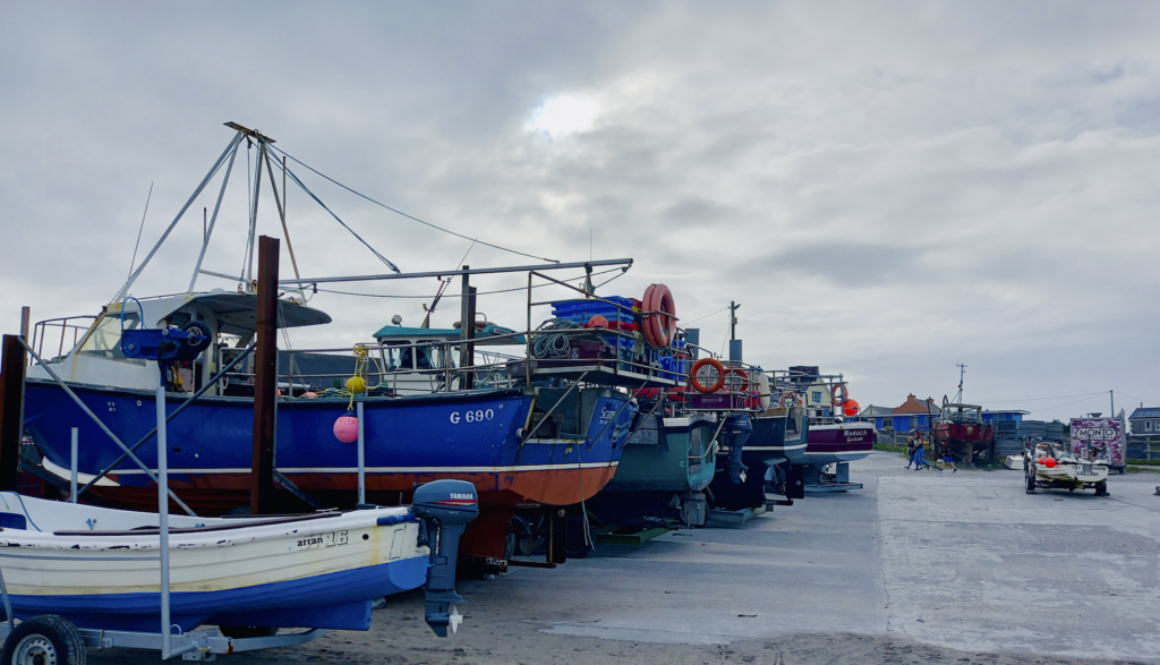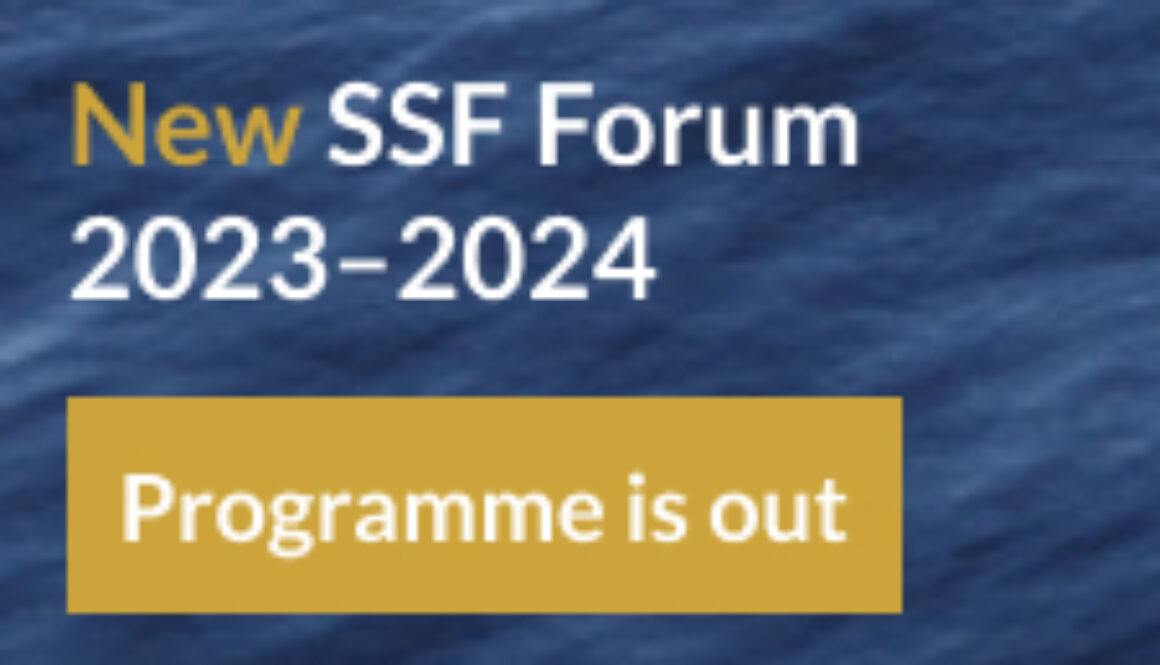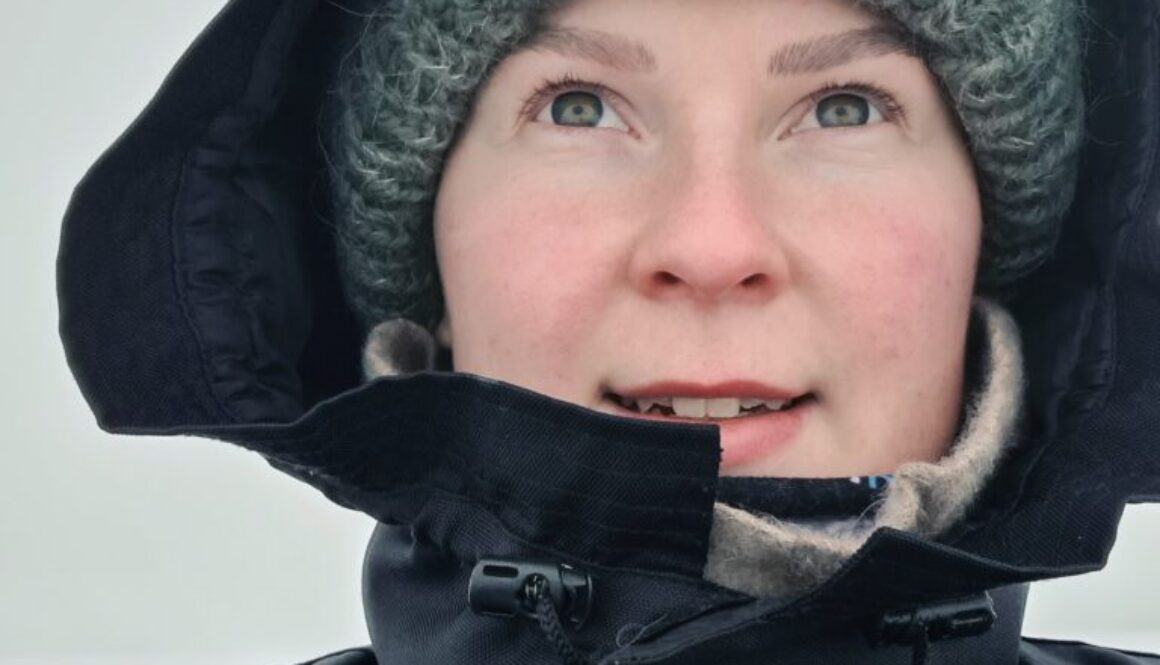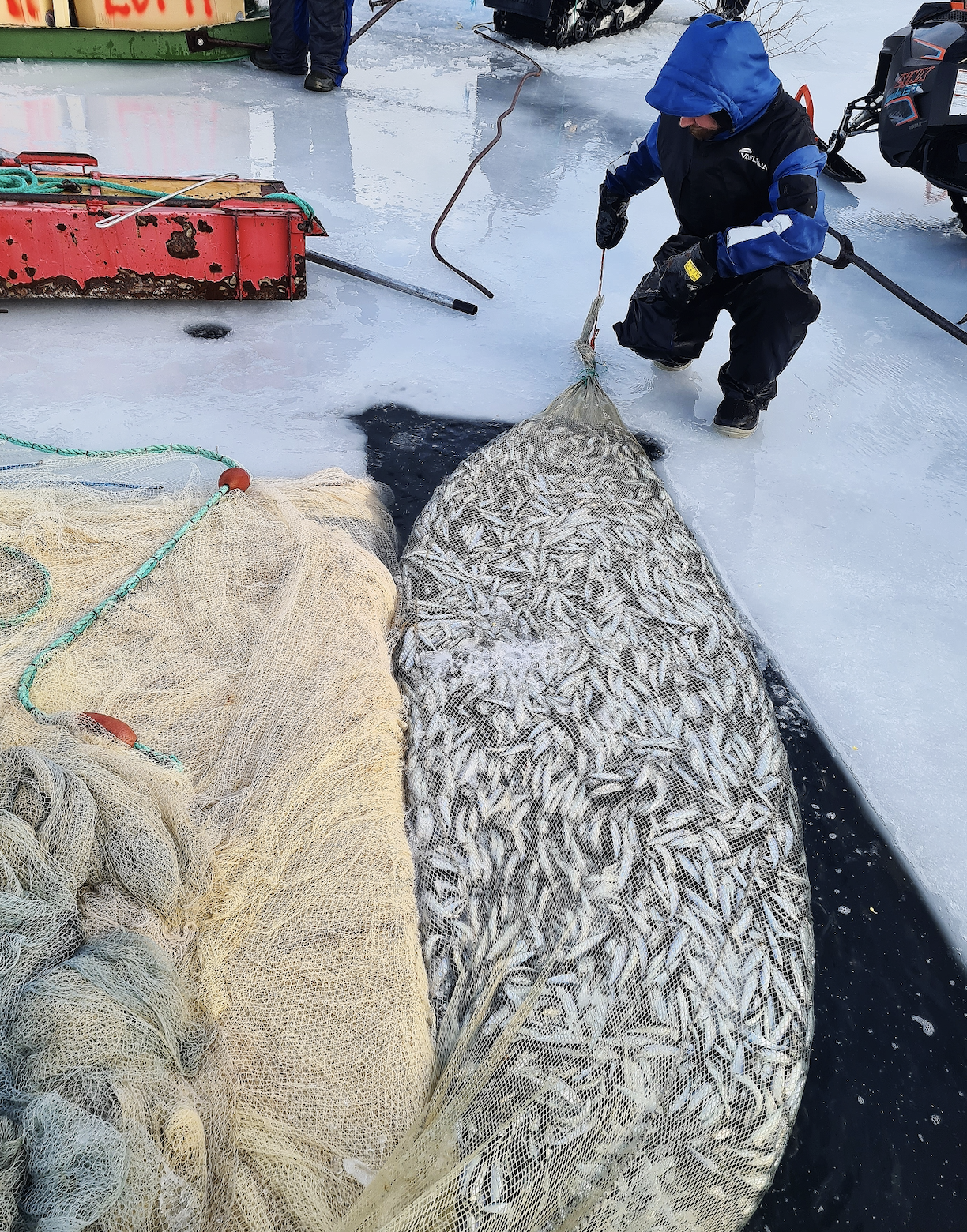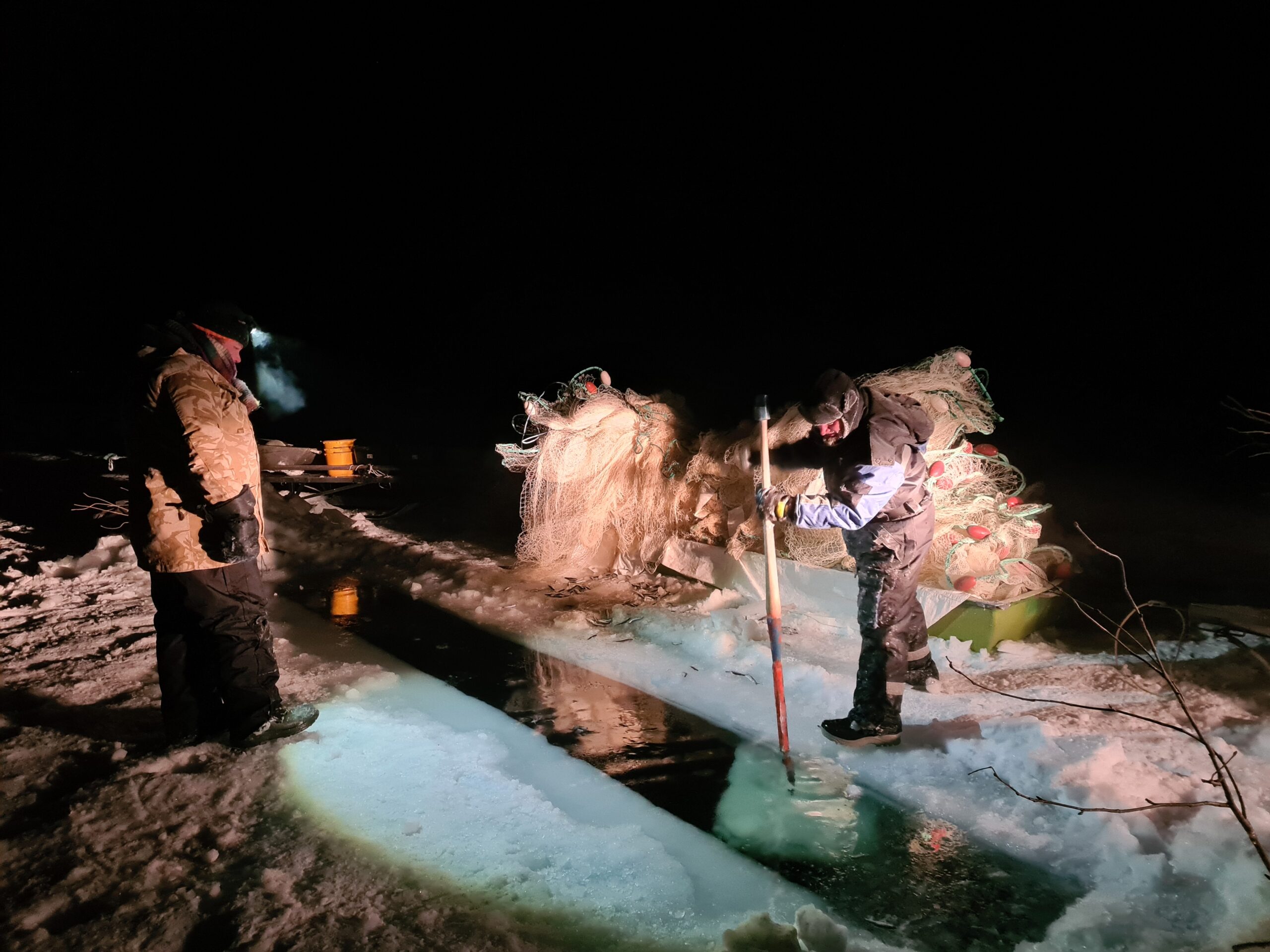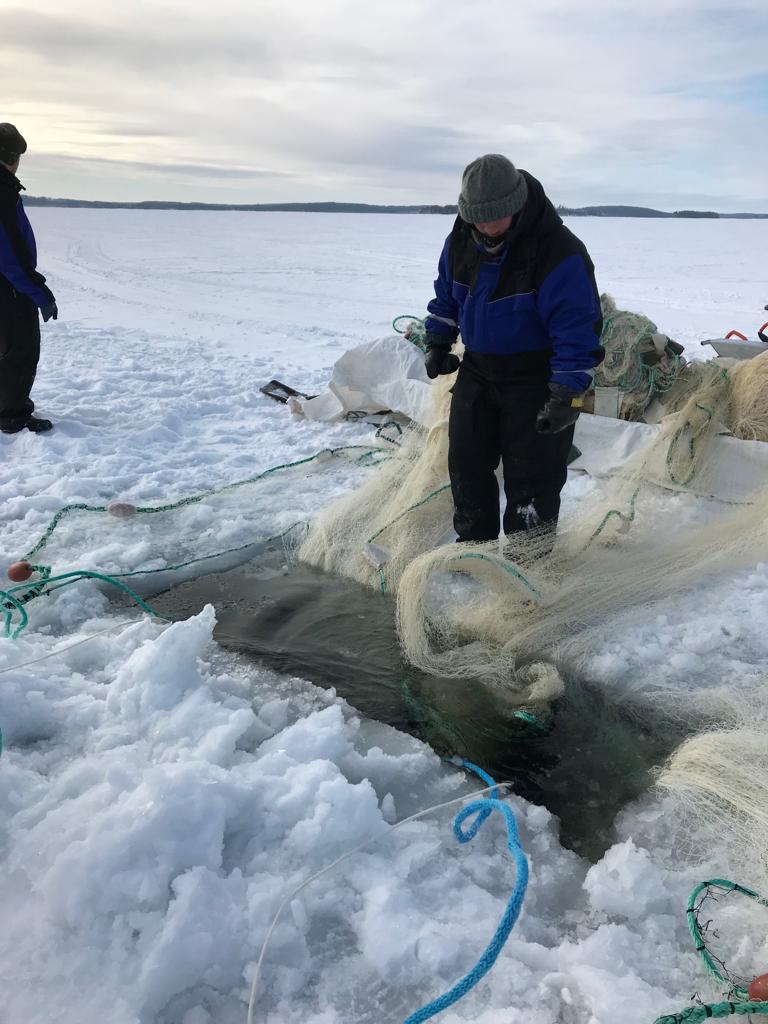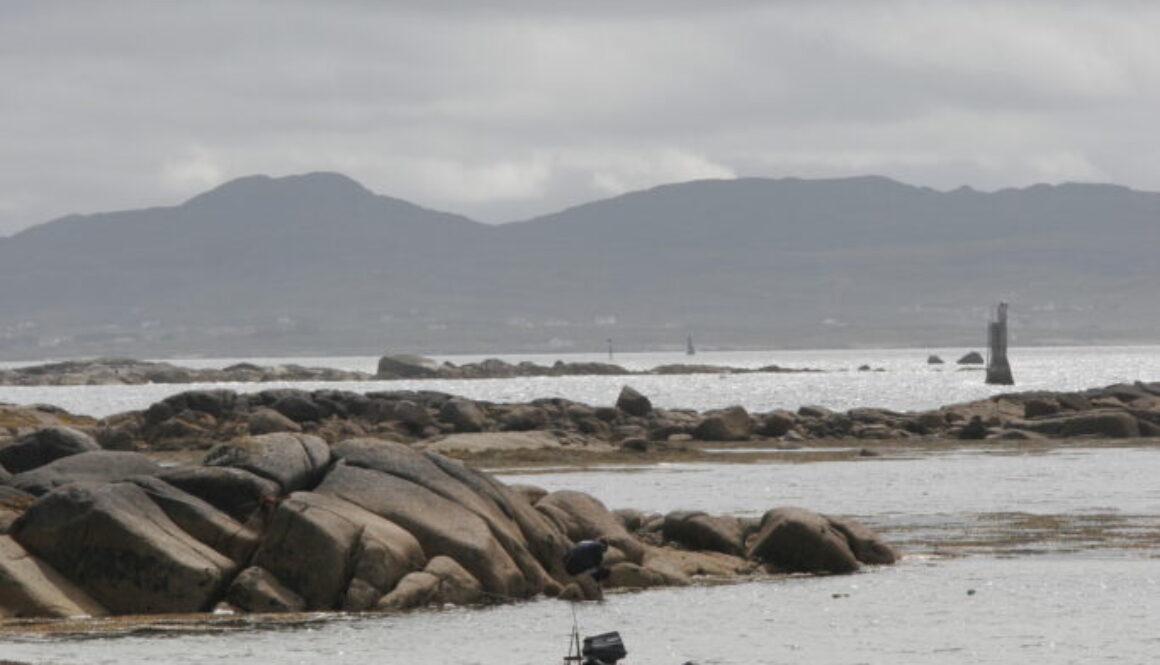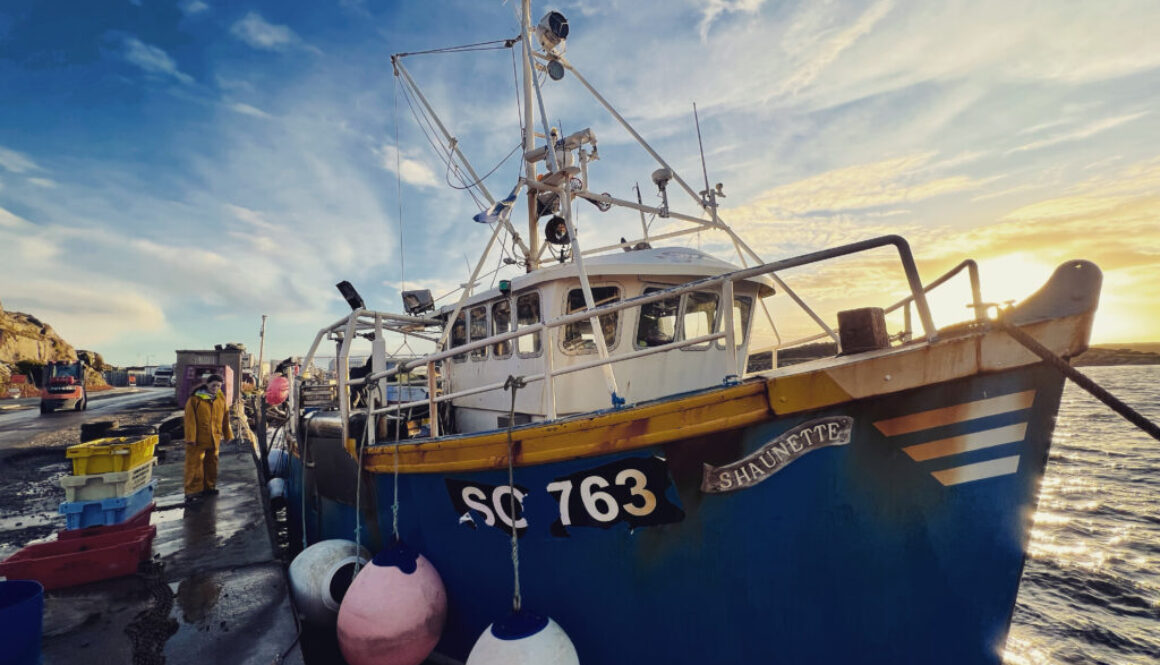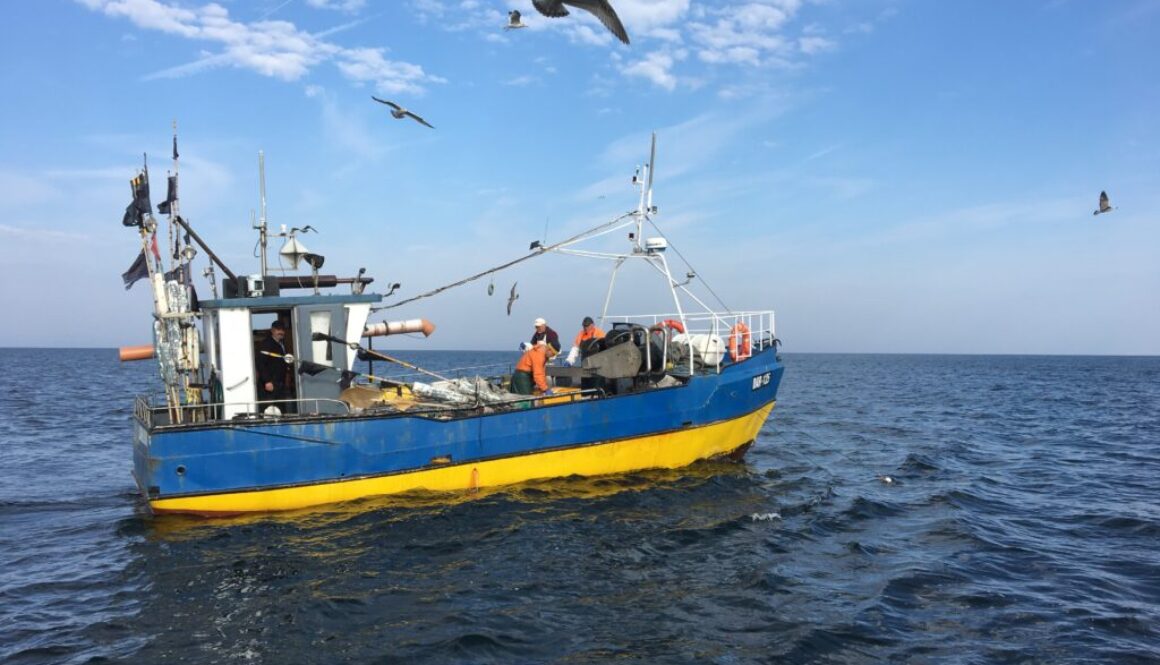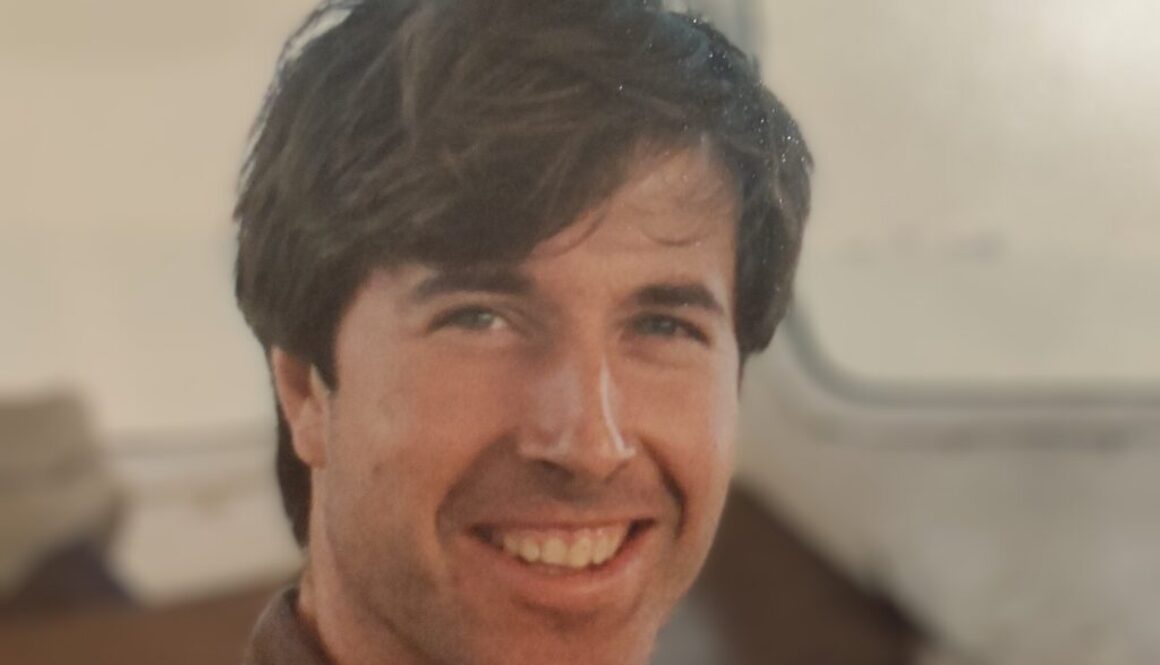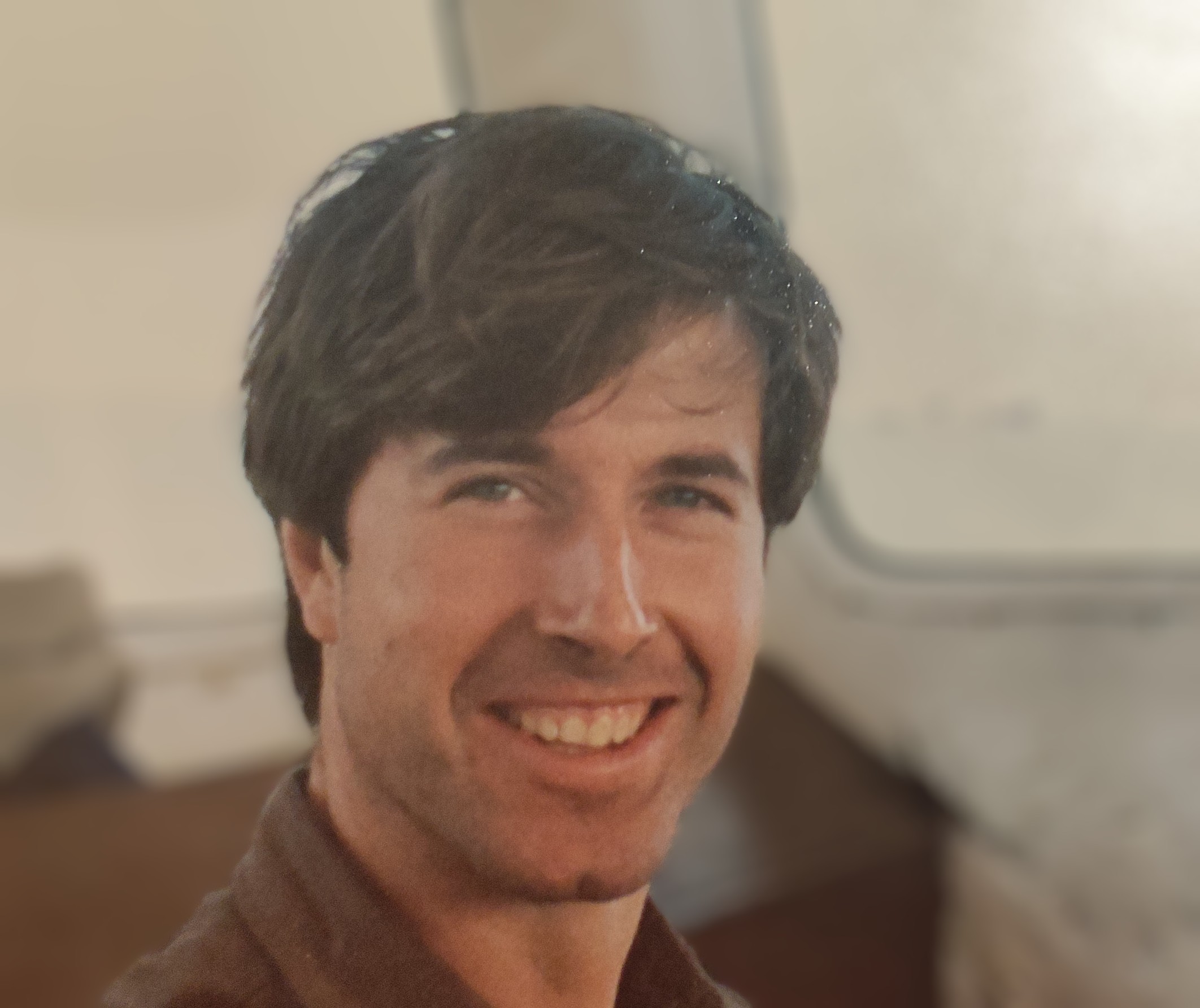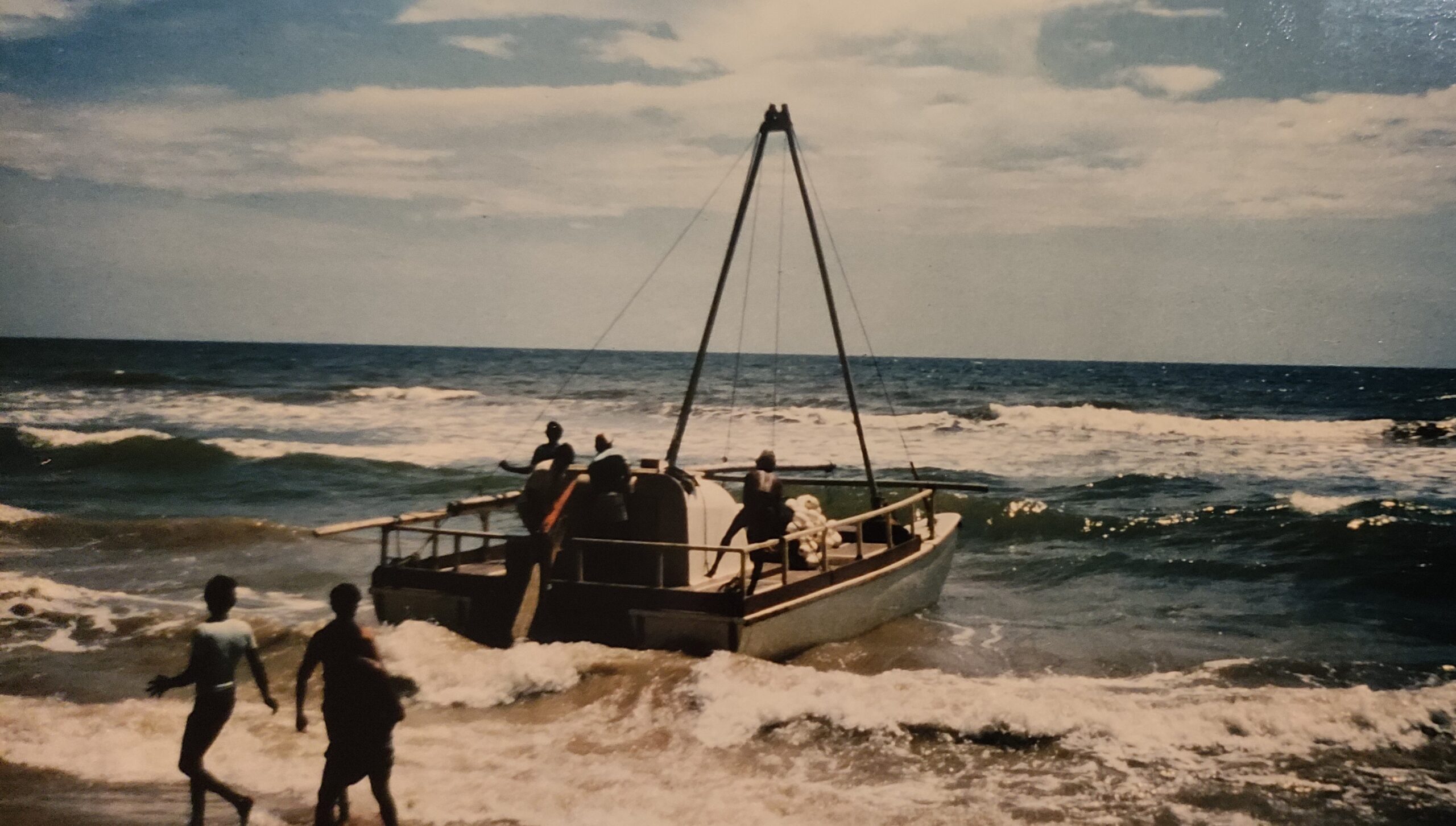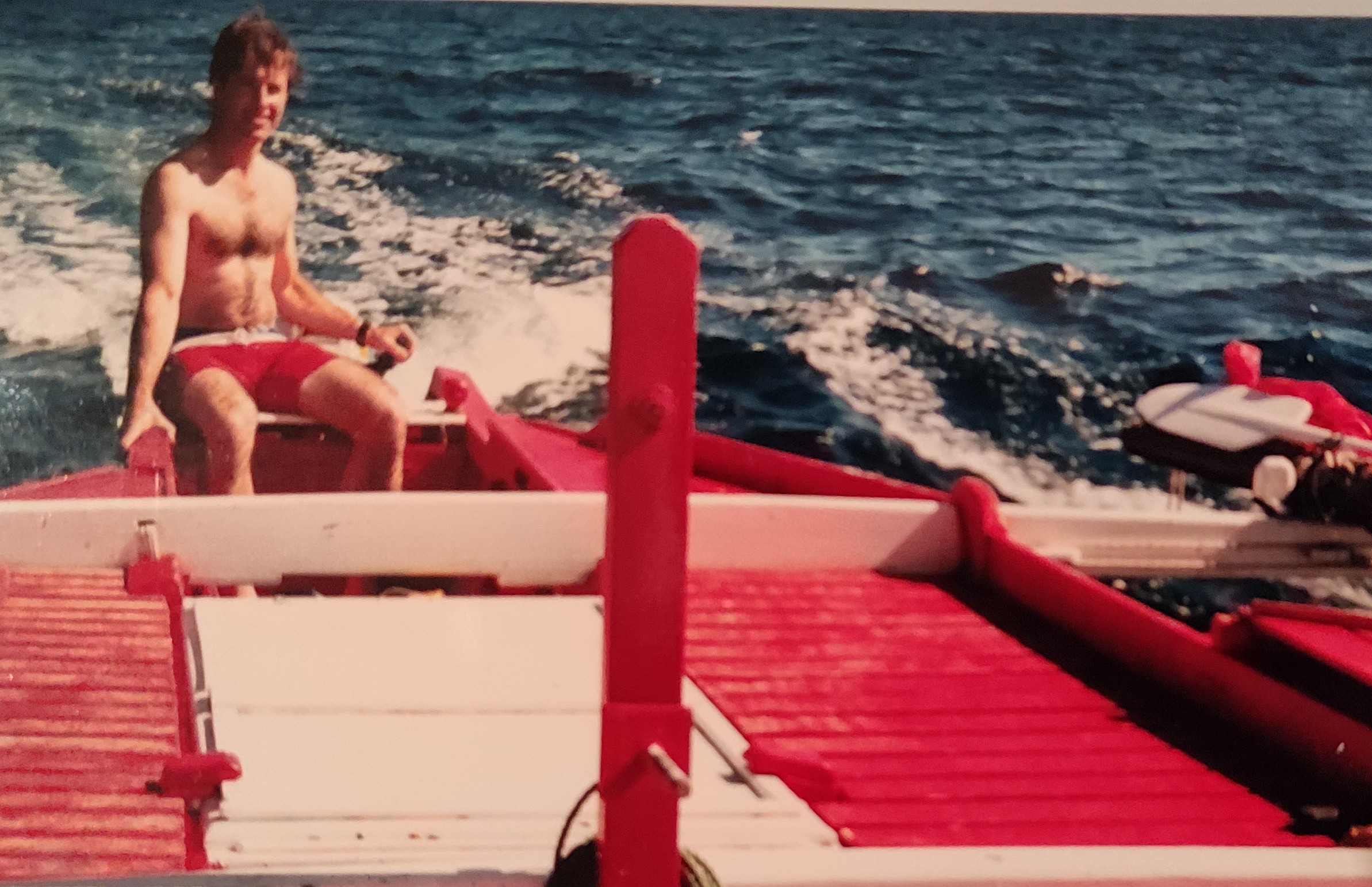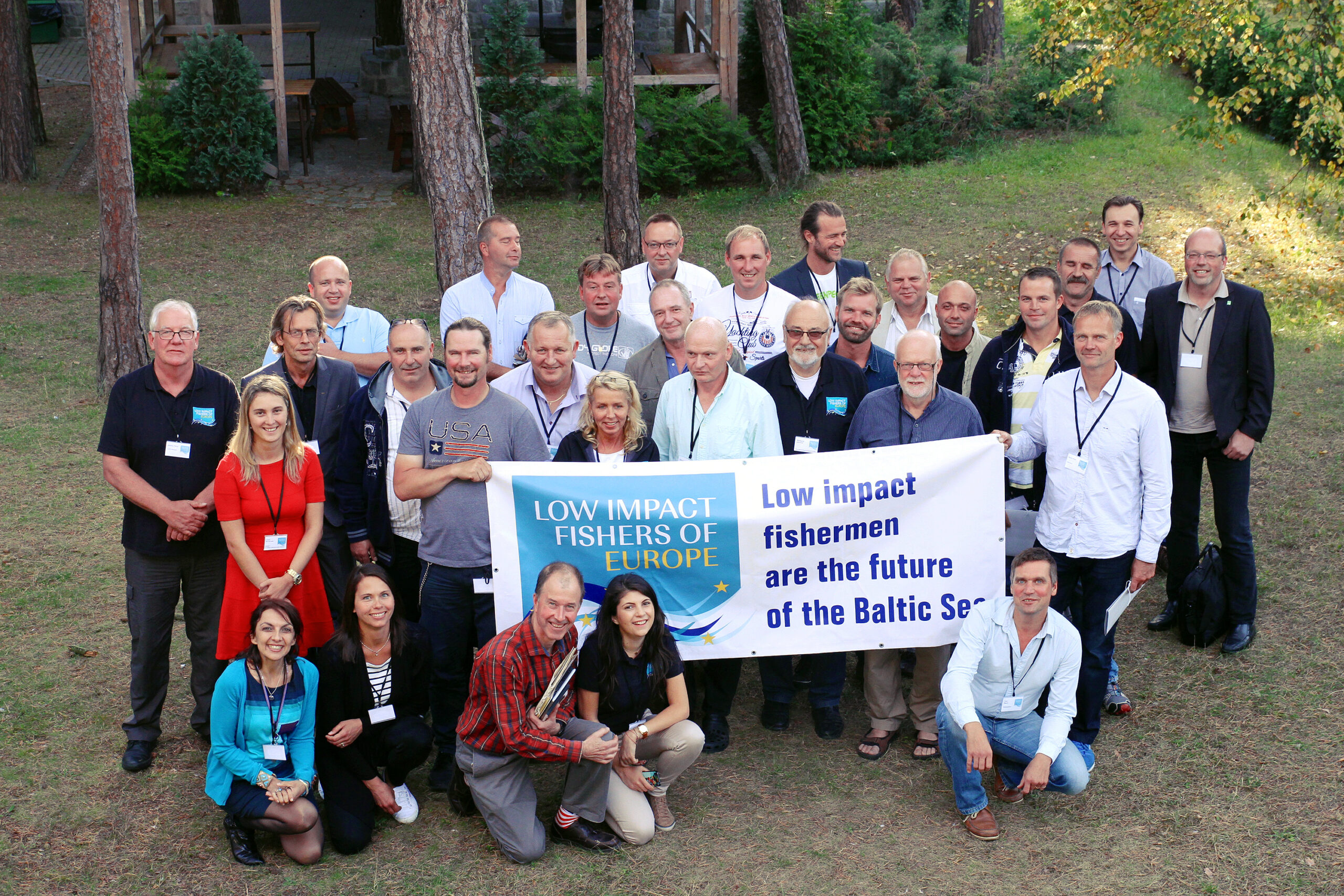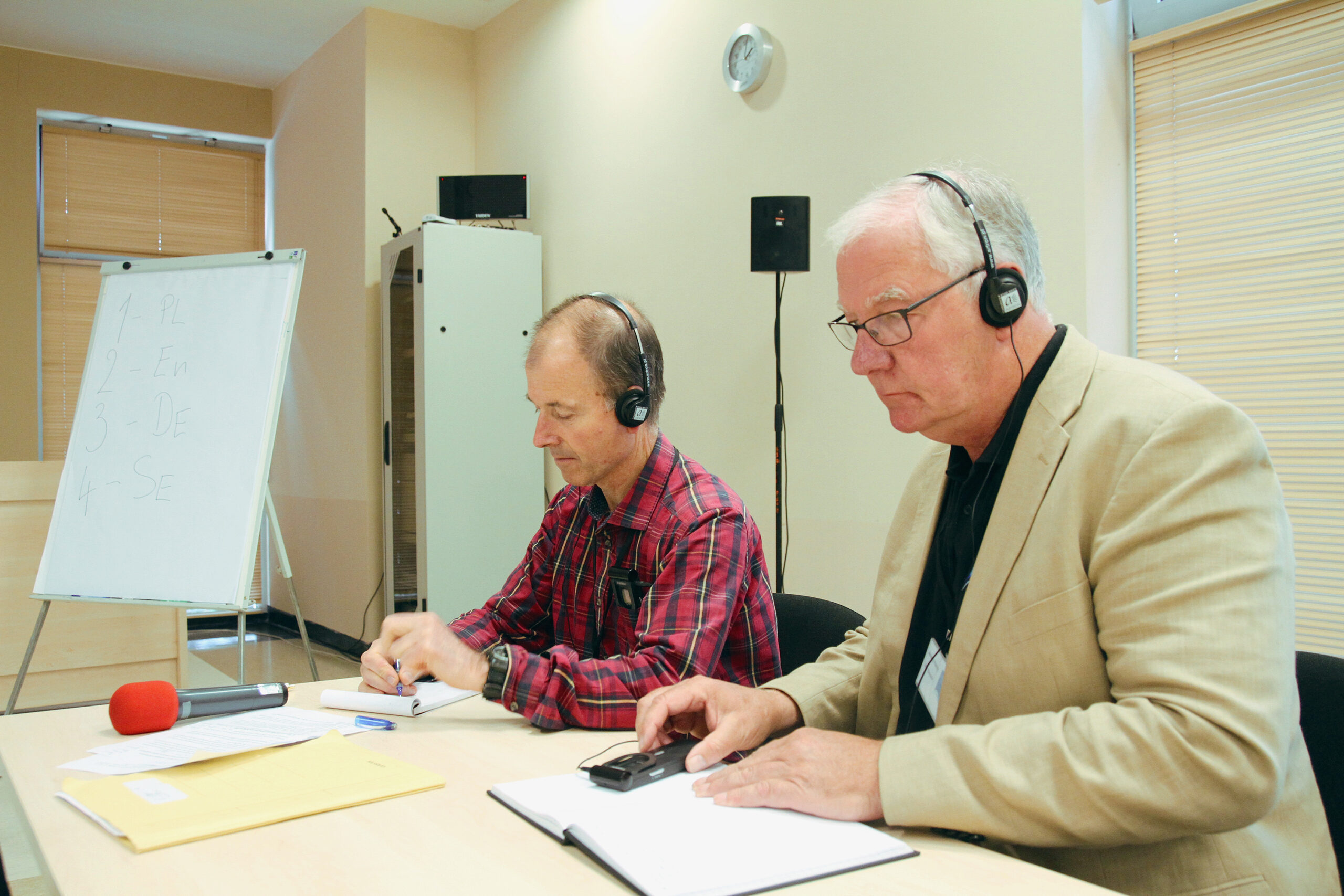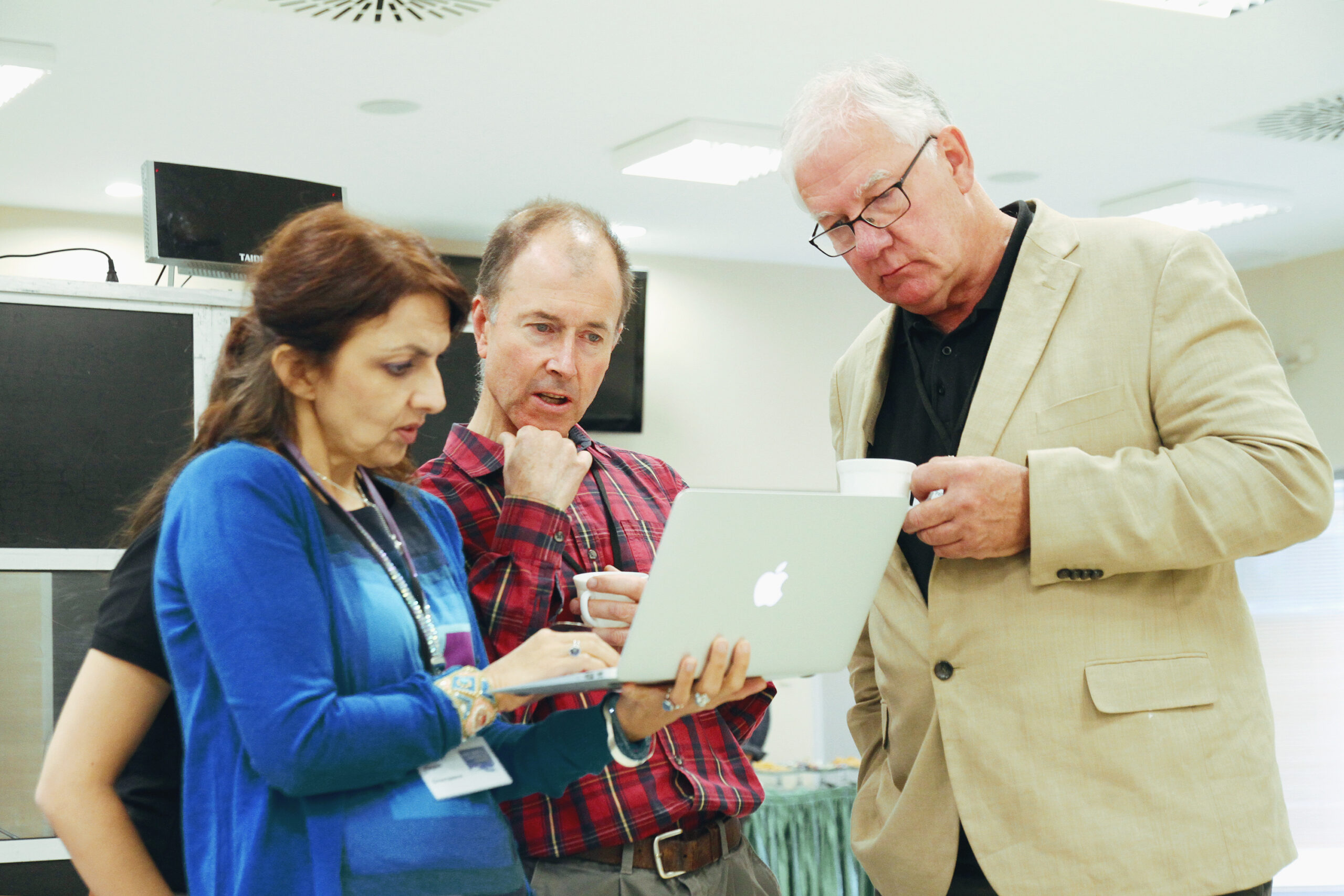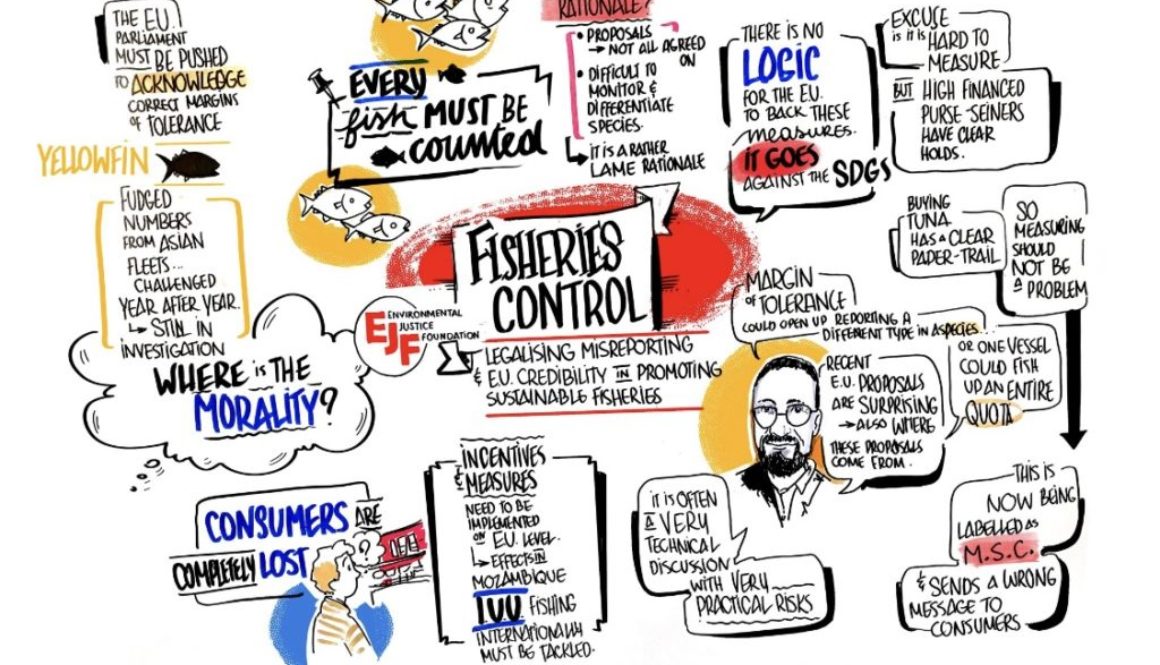art by: Iris Maertens
At UNOC 2022 small-scale fishers and fishing community representatives from 6 continents made a Call to Action for inclusive ocean governance reform.
Small-scale fishers: the most numerous ocean users
The second UN Ocean Conference (UNOC 2022) hosted in Lisbon from 27 June to 1 July was all about the need to conserve and sustainably use the world’s oceans, seas and marine resources.
The ambition of UNOC 2022 is set out in the Lisbon (Political) Declaration on Our Ocean, Our Future, Our Responsibility.
The focus of UNOC 2022 was to take stock about how Sustainable Development Goal 14 (SDG 14), which concerns preserving life under the water and includes 10 targets, is being implemented. Launched in 2015, and intended to be achieved by 2030, the 17 SDGs are interlinked global goals designed to be a “blueprint to achieve a better and more sustainable for all”.
Small-scale fishers (SSF) and coastal communities are the most numerous ocean users. Their small-scale fishery activities provide a vital source of food, livelihoods, socio-economic and cultural benefits locally and equitably to millions of people around the world – notably in the global South.
SSF’s close relationships with the sea and the coastal environment over centuries provide them with a rich reserve of traditional knowledge – Traditional Ecological Knowledge (TEK). Through their daily activities at sea and on the coast, small-scale fishers garner insights into how the seas function, about the seasonal changes in fishery and other marine resources, weather patterns and associated phenomena. This experiential knowledge enhances their skills as seafarers, as food producers and as guardians of the seas. This represents a massively underutilised but potentially game changing knowledge base. Together, their TEK and experiential knowledge form part of a rich biocultural diversity, contributing to diverse cultural landscapes and seascapes. Defending and promoting biocultural diversity is key to the sustainable use of the natural resources in the oceans, seas and coastal areas.
It is therefore highly appropriate that small-scale fisheries should have a special place in the targets set for SDG 14. Target SDG 14b aims to provide access to marine resources and markets for small-scale fishers.
Human life above water depends on sustaining healthy life under water
Conserving life under the water and sustainably using the oceans, seas and marine resources are vital to sustaining human life and wellbeing above the water. In the main, UNOC 2022 in Lisbon brought together 2 main protagonists: those clamouring for reforms in ocean governance to Save Our Ocean (i.e. save human life on our planet), and those clamouring for reforms to open up the Blue Economy and pave the way for giant steps in investment, industrial development and wealth creation, notably in energy generation, mineral and living resource extraction, food production, bioprospecting and shipping.
A Call to Action
All too often, small-scale fishers (SSF) are absent from the decision-making process. All too often others, who are remote from the daily realities of the small-scale fishers, albeit perhaps with the best of intentions, speak on their behalf. These interlocutors invariably do more harm than good by misrepresenting SSF, making them invisible, disempowering them, and by not consulting with them on what they say, or how what they have said has been received.
Hence for the Lisbon UNOC 2022, small-scale fishers wanted to be there in person. “Talk with us, not for us”, and “there is nothing about us without us”, summarise how SSF feel about such interlocutors. If enabled to participate by such interlocutors, SSF are very well able to express their own demands, hopes and fears.
This is how a group of around 20 small-scale fishing representatives (SSF representatives) from 6 continents – Oceania, Asia, Africa, North and South America and Europe found themselves amongst the 6.000 or so official delegates who had registered to attend the UNOC 2022. With support and coordination provided by a network of regional civil society organisations (CSOs), these representatives were able to make an early start on their road to Lisbon.
The organisations engaged in this process included the Locally Managed Marine Area Network (LMMA) from the Pacific, Kesatuan Nelayan Tradisional Indonesia (KNTI) from Indonesia, the Federation of Indian Ocean Artisanal Fishers (FPAOI), the African Confederation of Professional Organizations of Artisanal Fishers (CAOPA), and a Mesoamerican network bringing together indigenous communities from Costa Rica, Panama, Honduras (Garifuna) and Mexico.
They were supported in this endeavour by the Coalition for Fair Fisheries Arrangements (CFFA), CoopeSoliDar R.L, and Blue Ventures.
Joining their voices to the Call for Action were other SSF groups from Europe, Africa and Latin America.
The initial work involved meeting and sharing experiences of their daily lives, their working conditions, and their hopes and their fears. This was made possible by specialists in communications, interpretation, facilitation and coordination working alongside these frontline workers to enable them to express themselves clearly and be understood. Step by step they began to build an alliance, based on empathy, trust, and mutual respect, and to understand the boundaries of their common cause. This is expressed in their Call to Action, which calls on governments to:
- Provide secure and preferential access to healthy oceans and ecosystems for small-scale fishers
- Develop science based, transparent, inclusive and participative fisheries management;
- Address threats posed by pollution and competition from blue economy industries;
- Invest in long-term resource management, ecosystem restoration and innovations, building on local initiatives of men and women from fishing communities.
- Develop national strategic plans to implement 5 key areas of action by 2030, with adequate funding and guided by the FAO Guidelines to Secure Sustainable Small-scale Fisheries and other relevant regional policies.
The 5 key areas of the call are to:
- Urgently secure preferential SSF access to, and co-manage 100% of coastal areas.
- Guarantee the participation of women, support their empowerment and foster recognition and respect for the roles they play.
- Protect small-scale fisheries from competing Blue Economy sectors
- Establish transparency and accountability in fisheries management
- Build the resilience of communities to face the threats of climate change and enhance the prospects for youth.
Breakfast meetings and an Ocean’s Base Camp
In preparation for day 3 of the UNOC 2022 and the plenary session on fisheries – the “Interactive Dialogue on Making Fisheries Sustainable and Providing Access for Small-scale Artisanal Fishers to Marine Resources and Markets” – the SSF representatives met daily. The preparation work included agreeing on the division of roles and responsibilities for getting their Call to Action known about, meeting with their national and regional delegations to solicit their support and reaching out to the wider civil society representatives to support their call.
Il- breakfast meetings were made possible thanks to support from the ICCA Consortium who provided interpretation into 4 languages, and from the Oceana Azul Foundation who reserved the use of the Tejo Restaurant in the Lisbon Oceanarium for the breakfast meetings.
In addition, the Portuguese NGO coalition Sciaena, together with the Oceana Azul Foundation and Seas at Risk, had established an Ocean Base Camp – https://oceanbasecamp.org/ – as a “safe haven” for CSOs during the UNOC 2022. The Base Camp provided space to drop in, chill out, meet up, engage in discussions, and participate in a series of events over the week.
A visual, real-time record of the events and issues discussed was provided in summary form by Iris Maertens of Irisistible Design who gave her amazing skills for free.
Aptly, one of the first events at the Base Camp was on the “Power of Partnerships”, in which the author participated. The power of partnerships is to build synergies and to create alliances whose combined strengths are much greater than the sum of the individual organisational components. The weaknesses lie in potentially conflicting objectives between the various partners. All too often, conflicting priorities and objectives disrupt building synergies and powerful alliances. Careful planning, building trust and full transparency are essential.
The Ocean Base Camp also hosted the SSF representatives from 6 continents, who presented their Call to Action.
Making Fisheries Sustainable
The week in Lisbon was abuzz with frenetic activity, with many informal events, workshops and meetings going on around the formal UNOC sessions. However, a lack of interpretation made these difficult for the SSF delegations to engage in meaningfully.
In one such event discussing the “Future of the Ocean: finding cooperative pathways towards 2030”, the Moderator of the meeting and architect of the 2014 European Common Fisheries Policy, Mr Ernesto Penas Lado, proposed that ocean activities needed to be “legitimate and compatible” in order to qualify for space in the emerging ocean governance framework. Competing interests would have to engage in meaningful dialogue to secure ever diminishing slices of access, with non-traditional users of ocean space encroaching on traditional fishing grounds, for example. There would be winners and losers. Vivienne Sollis (CoopeSoliDar R.L Costa Rica) speaking for CSOs, said that such a framework also had to be equitable. Currently seats at the table go to those with the most power and influence. This has to change.
Dawda Saine, the General Secretary of CAOPA, observed that there is no consensual view on what the Blue Economy actually is. This has led to many SSF referring to it as the “Blue Fear”. Summing up, the Moderator observed that we need to transition from blue fear to blue trust, with dialogue and inclusion being essential to that objective.
On behalf of the LMMA Network Lavenia Naivalu from Fiji, and as a traditional leader of her community, highlighted how communities like hers are entirely dependent on fisheries resources, and work cooperatively to manage and sustain them. She called for greater transparency and accountability, especially to ensure that gender sensitive data is collected and that the information about women’s role is made available, particularly as concerns to food security, livelihoods and conservation
Javier Garat, President of the International Coalition of Fishing Associations (ICFA) and the European fishing vessel owners’ association Europech, said it was essential for artisanal and industrial fishers to work together to reach food security through sustainable use of marine resources. This is rather like the chair of agribusiness associations calling for small-holders practicing agro-ecology and industrial farming companies to work together.
The Low Impact Fishers of Europe (LIFE) responded that it is prepared to work with anyone in a constructive dialogue, so long as the historic injustices suffered by smaller scale fishers are recognised, and their rights to fair access to resources and markets are reflected in practical support and management measures, with adequate protection from the encroachment of larger scale fishing and other competing activities.
Interactive Dialogue
Several SSF representatives were granted permission to speak in the plenary session on “Making fisheries sustainable”. Josefina Mata from Mexico, a member of the delegation of indigenous communities from Mesoamerica, spoke powerfully about the role of women, often heads of single parent households, who struggle to put food on the table and educate their children, whilst carrying out their livelihoods. From Guinea Conakry, and representing CAOPA, Antonia Adama Djalo presented the 5 priorities of the Call to Action and asked for a paragraph to be added in final declaration, highlighting the fundamental role small-scale fisheries play to eradicate hunger and poverty and to secure sustainable livelihoods and conserve marine ecosystems; she further called for the Lisbon declaration to list the priority actions that need to be taken by governments to ensure they continue contributing to economies, health, culture and well-being.
Fishers from Europe
The Low Impact Fishers of Europe (LIFE) had participated with counterparts from around the world to draft the Call to Action described above. In Europe we face a very different set of threats, challenges and opportunities compared to SSF in the South. Here we are citizen-consumers, with our needs provided for by the market. According to our spending power, the market provides us with a choice of food products in fresh, whole or in processed form. Our food security is dependent on our spending power and on what market supplies. This puts us in a very vulnerable situation, with a high dependency on long, complex, energy intensive, and waste generating supply chains and their just-in-time delivery systems. In Europe SSF could help improve and secure the situation by providing fresh, healthy, sustainable food in season at a fair price, locally as espoused by the Foodnected project.
Europe is the largest market in the world for fish. Around 7 out of every 10 fish we Europeans eat is imported, and nearly 50% of what we eat is from 5 species – salmon and shrimp (mainly from feed lot aquaculture), cod, tuna and Alaska pollack.
As in the South, SSF (passive gears, vessels below 12 metres) represent the majority of the sector in terms of fleet size, but in terms of employment and productivity its dominance is gradually being eroded. Today EU SSF provide around 50% of the jobs at sea but are restricted to only 5% of the catch by volume. This means that only around 15 grams out of every kilogram of fish we consume in Europe comes from European small-scale fishing activities.
In her speech to the Inter-Active dialogue on Making Fisheries Sustainable, Charlina Vitcheva, Director General of the European Commission’s DG Mare, noted that artisanal fisheries in Europe pose particular challenges. “What we really mean by small-scale fishing is fishing from small-boats, which is not necessarily sustainable”, she said. “To make them sustainable we need a lot of data and controls to make sure they are abiding by the rules.”
Unfortunately, the European Commission and many national authorities still see SSF as part of the problem of fisheries management, rather than as part of the solution. Tarring all SSF as “fishing from small boats and not necessarily sustainable” fails to take into account that SSF is a seasonally diverse, polyvalent activity rooted in communities, providing social and economic benefits in areas with few alternatives. Blanket regulation is not the way forward. Such regulation through successive Common Fisheries Policies has led to the demise of SSF in Europe.
Rather LIFE espouses a “differentiated approach” to fisheries management, for artisanal fishing on the one hand, and for industrial fishing on the other. Such an approach would ring fence SSF fishing rights, establish comanaged exclusive fishing zones for SSF, provide support for organisational and infrastructure development, and empower fishers to become agents of change with co-responsibility for sustaining European seas.
However, the Blue Fear referred to by CAOPA is a very real and present danger. In Europe, the EU’s Green Deal offshore energy generating targets commit to increasing capacity from current levels of around 12GW to over 300 GW by 2050. Also, achieving a climate neutral decarbonized fishing sector will require radical changes in technology, economy and working practices. Blue food is also firmly on the menu. Although largely undefined, this could be the thin end of the wedge for boosting environmentally destructive feed lot aquaculture in our coastal waters and pave the way to industrial production and extraction of marine algae and seaweeds. The future may be Blue, but for SSF there is little optimism that this gives any grounds for Blue Hope.
UNOC 2022 was an inspiring and energising event. In particular it provided the possibility to build meaningful synergies with counterpart associations and build alliances with like-minded organisations from around the world. It helped us to gather strength, coordinate and prepare for the struggles ahead.
The final Lisbon declaration from the SSF group can be seen here.
The Struggles Continue: Milestones along the way
The UN system is not perfect. It is designed on democratic principles for states to engage in international decision-making processes. It is not designed for non-state actors and civil society organisations, but various mechanisms exist for these entities to access UN processes as observers, or as part of governmental delegations.
In 1984, the FAO World Conference on Fisheries Management and Development had no facility for allowing the participation of small-scale fishers, despite the best intentions. This spurred a movement that led to a parallel conference being organised – The International Conference of Fishworkers and their Supporters – where 100 participants from 34 nationalities came together to discuss their concerns. At least 50% were professionals in the small-scale fishing sector – the fishworkers. The other 50% were supporters – individuals or NGOs not directly engaged as professionals in fishing related activities.
Building on the 1984 event in Rome, in 1986, the International Collective in Support of Fishworkers (ICSF) was launched by “fishworker supporters” in Trivandrum, India, to address issues at international level that affected SSF at national and local level. The ICSF would act to document and make information available on issues affecting SSF, and where appropriate launch campaigns and organise events to discuss such issues with SSF representatives.
In 1997 the World Forum of Fish Harvesters and Fishworkers (WFF) was launched in New Delhi, India. The Forum aimed to represent those directly engaged in fishing, processing, sale and transportation of fish in the subsistence, artisanal, aboriginal and traditional sectors.
In 2000 the WFF decided to split into 2 groups – the WFF and the World Forum of Fisher People (WFFP), both with similar objectives to those defined in 1997.
The process of drafting of the FAO Voluntary Guidelines on Securing Sustainable Small-scale Fisheries in the context of Food Security and Poverty Eradication (VGSSF) engaged ICSF, WFF, and WFFP in intensive collaboration that resulted in their adoption in 2014. The process was facilitated by the International Planning Committee for Food Sovereignty (IPC), a Rome based entity that facilitates CSO engagement in FAO processes around food production issues.
4000 entities were involved in the VGSSF related processes. At the same time, numerous other national, regional and transnational structures relating to SSF have come up, some associated with the WFF, WFFP and the IPC, others forming different alliances.
The rich diversity of actors at international level reflects perhaps the rich diversity of SSF fishing communities around the world. It is hoped that this diverse group of actors can work to support the common cause of SSF.
